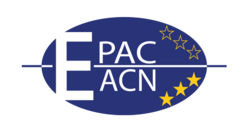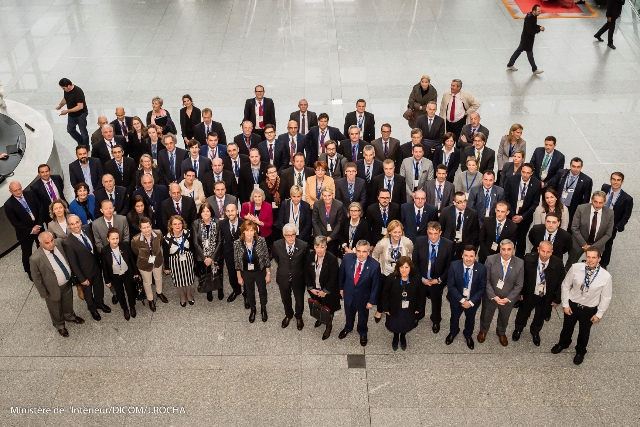Over 80 delegates from 53 anti-corruption authorities and police oversight bodies met in Paris, France on 18-20 November 2015 for the network's Annual Professional Conference and General Assembly.
The delegates expressed solidarity with the French people and authorities following the recent terrorist attacks, and extended their gratitude and admiration of the General Inspectorate of the National Police (IGPN), the host of the event.
Based on the work and results of two EPAC/EACN Working Groups, set up by the General Assembly in Sofia in November 2014 to develop policy recommendations for the EU Anti-Corruption Report and to prepare a dedicated EPAC/EACN communication tool within the Europol Platform for Experts (EPE), the General Assembly adopted the Paris Declaration, which calls for:
-
the deterrent punishment of crimes of corruption through both custodial and financial punishments and effective systems of recovery of assets;
-
the introduction of a cross-border automatic exchange of financial information for the investigations of crimes of corruption by the law enforcement agencies;
-
the establishment of an appropriate tool at both the national and transnational level for the protection of threatened key witnesses and disclosers of crimes of corruption;
-
further intensified co-operation and information sharing between anti-corruption authorities and police oversight bodies in Europe through the newly launched EPAC/EACN communication tool within the EPE;
Plenary Sessions
Giovanni Kessler, EPAC/EACN President, opened the conference, emphasising his admiration of the General Inspectorate of the National Police (IGPN) for going through with the event despite grave circumstances in the country. He also underlined the need to present the positions and recommendations of the EPAC/EACN community of professionals on pressing policy matters.
The first plenary session looked at how to ensure an ethical, efficient, impartial and transparent oversight of police bodies. The session was chaired by Frédéric Debove (Panthéon Assas University, France), with panellists Anthony Duggan (Garda Siochána Ombudsman Commission, Ireland, EPAC/EACN Deputy Vice President), Claudine Angeli-Troccaz (Défenseurs de Droits, France), Piotr Hac (Internal Affairs Office of the National Police, Poland) and David Chantreux (IGPN). The speakers outlined the mission and operation of their institutions, comparing the internal and external model of police oversight (or their combination).
The second plenary session examined the link between prevention and repression in the fight against corruption. The session was chaired by Robert Earhart (American University of Paris) and included panellists Éliane Houlette (National Financial Prosecutor, France), Andreas Wieselthaler (Federal Bureau of Anti-Corruption, Austria) and Raffaele Cantone (Anticorruption National Authority, Italy), who presented their national models.
The results of two EPAC/EACN Working Groups, set up by the General Assembly in Sofia in November 2014 to develop policy recommendations for the EU Anti-Corruption Report and to prepare a dedicated EPAC/EACN communication tool within the Europol Platform for Experts (EPE), were presented by the Chairs and discussed among the members.
Workshops: ACA (Anti-Corruption Authorities) and POB (Police Oversight Bodies) Strand
Two parallel workshops allowed participants to work together and exchange experiences in thematically focused sessions with their peers from ACA/POB Strand.
ACA: Anca Jurma (National Anticorruption Directorate, Romania, EPAC/EACN Vice-President) chaired the workshop on the rules and practices on gifts and gratuities to public servants. The panellists included Pierre Fize (Department of Ethics and Deontology of the French Railways SNCF), Jean-François Cassabone Masonnave (Internal Legal Department of the French Ministry of Foreign Affairs) and Patrick Amalvy (Directorate of International Cooperation, France).
POB: Margarida Blasco (Inspectorate General of the Internal Administration, Portugal, EPAC/EACN Vice-President) chaired the workshop on the effective handling of public complaints. The panellists included Anne Owers (Independent Police Complaints Commission, United Kingdom), Kirsten Dyrman (Independent Police Complaints Authority, Denmark), Sylvain Cherbonnier (Unit to Coordinate Investigations, France) and Eric Panloup (Directorate of International Cooperation, France).
General Assembly (GA)
The General Assembly re-electedAnca Jurma as Vice-President and Daniel de Alfonso Laso as Deputy Vice-President for the ACA strand, each for a two-year term. Dominique Devos-Cavier was elected Vice-President for POBs, also for a two-year term. The General Assembly thanked Margarida Blasco, the outgoing Vice-President for POBs, for her services. The mandates of Giovanni Kessler as EPAC/EACN President and Anthony Duggan as Deputy Vice-President for POBs, both re-elected by the 2014 General Assembly, will remain in effect until the General Assembly in 2016.
On the proposal of the EPAC/EACN President, the General Assembly established two Working Groups, one for each strand, to ensure the on-going activity of the network and prepare for next year's Annual Professional Conference. The themes, chairs and members of the Working Groups will be established through a call for interest.
In addition, the General Assembly accepted new EPAC members from Ukraine (National Anti-Corruption Bureau of Ukraine)and Azerbaijan (Prosecutor's Office and Anti-Corruption Directorate with the Prosecutor General).
The 15th Annual Professional Conference and General Assembly concluded with the adoption of the Paris Declaration, which all members are encouraged to distribute and share with their partners and the media.
The 2016 Annual Professional Conference and General Assembly will be held in Riga, Latvia in November 2016, and hosted by the Corruption Prevention and Combatting Bureau (KNAB).

